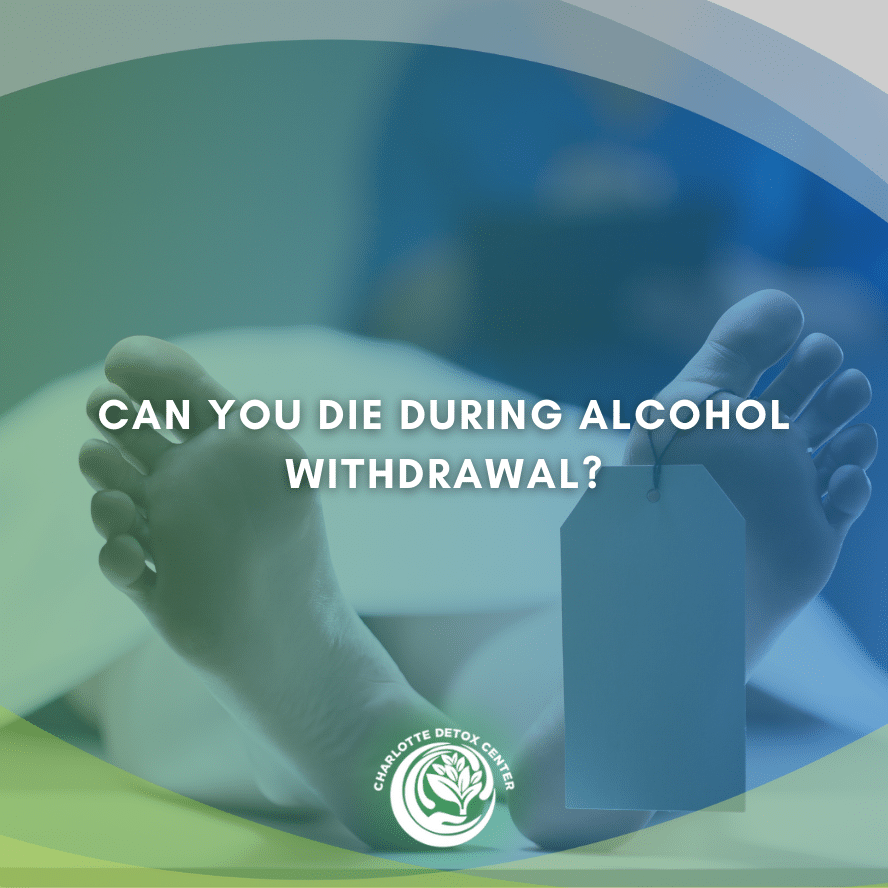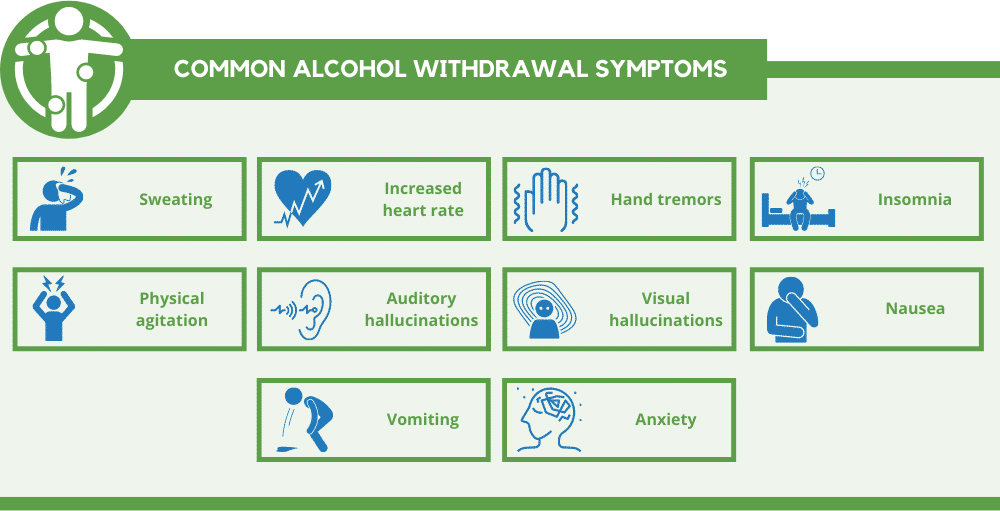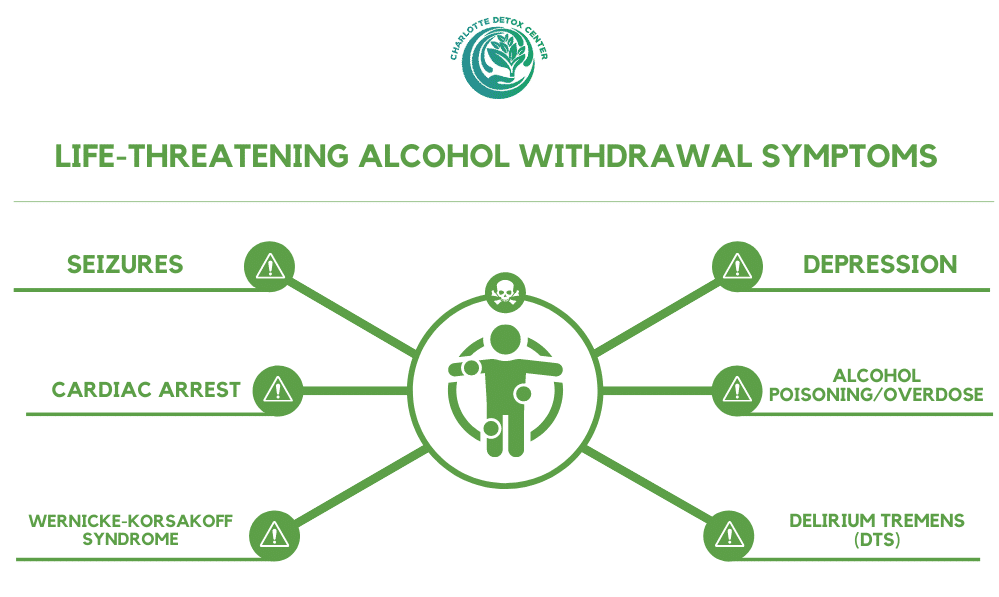Can You Die During Alcohol Withdrawal?

Medically Verified: 2/1/24
Medical Reviewer
Chief Editor

All of the information on this page has been reviewed and verified by a certified addiction professional.
Alcohol abuse can lead to long-term, serious problems. Over time regularly drinking large amounts of alcohol can result in serious medical issues such as high blood pressure, certain cancers, and digestive issues.
The decision to stop drinking should be celebrated. It can be a life-saving choice for people who have struggled with alcohol abuse for years. Most people require addiction treatment to safely, completely withdraw from alcohol. It can be a difficult and uncomfortable experience, and having support and medical supervision is critical.
In rare cases, people die during alcohol withdrawal. This is usually preventable if you have the right support and supervision. If you or someone you love struggles with alcohol abuse or addiction, it is important to understand the life-threatening alcohol withdrawal symptoms that can occur so that you can make informed decisions about your alcohol treatment.
What Are Common Alcohol Withdrawal Symptoms?
Many people develop uncomfortable symptoms within a few hours or days of their last drink. These are generally not life-threatening but can be so uncomfortable that people may start drinking again to alleviate them. Common alcohol withdrawal symptoms include:[1]

- Sweating
- Increased heart rate
- Hand tremors
- Insomnia
- Physical agitation
- Auditory and visual hallucinations
- Nausea and vomiting
- Anxiety
Alcohol is a central nervous system (CNS) depressant. If someone drinks heavily for a length of time, their body adjusts to the continual presence of alcohol by increasing CNS activity. If someone abruptly stops drinking, their CNS continues to function in this heightened state. This causes many of the common symptoms of alcohol withdrawal.
While most people who go through alcohol withdrawal have uncomfortable symptoms for a few days or weeks, some people’s withdrawal experience can be life-threatening.
What Are Life-Threatening Alcohol Withdrawal Symptoms?
In severe cases, people have life-threatening alcohol withdrawal symptoms that can lead to death without immediate medical intervention. Some of the most common life-threatening complications during alcohol withdrawal include:
Seizures
The heightened activity of the CNS can result in grand mal seizures. Left untreated, seizures can result in death. They can also cause people to fall and suffer head trauma. Up to one-third of people who experience alcohol withdrawal have seizures.[2]
Depression
One of the most common psychological symptoms of withdrawal is depression. Without intervention and treatment, depression can result in suicidal thoughts and behaviors.
Wernicke-Korsakoff Syndrome
This serious medical condition can develop after a prolonged period, often many years, of heavy drinking. Alcohol prevents the absorption and storage of an essential vitamin called Thiamin. Over time, a thiamin deficiency can lead to brain damage that causes symptoms similar to dementia or death. This condition is commonly known as wet brain.[3]
Delirium Tremens (DTs)
This dangerous, rare condition can develop during alcohol withdrawal as a result of extreme nervous system agitation. Delirium Tremens results in seizures, stroke, and heart attack if left untreated. Some of the early symptoms of DTs are confusion, agitation, fever, sweating, vomiting, hallucinations, and rapid heart rate. About 5% of the people who develop Delirium Tremens will die from it directly, but up to 20% die from injuries incurred during falls or other complications.[4]
Cardiac Arrest
Especially in the case of people with a history of heart disease, people can die if alcohol withdrawal triggers cardiac arrest or heart attack.
Alcohol Poisoning/Overdose
After a period of abstinence, people who drink are more likely to have alcohol poisoning as a result of a reduced tolerance.
While most people only experience uncomfortable withdrawal symptoms, it is important to be aware of the possibility of life-threatening conditions that can develop.
What Risk Factors Make it More Likely That Someone Will Die During Alcohol Withdrawal?
Anyone can develop life-threatening complications from alcohol withdrawal, but some factors make it more likely to happen. These include:
- Other serious health conditions, such as cancer, heart disease, liver disease, pneumonia, hepatitis, and pancreatitis
- Injury
- Infection
- Old age
Regardless of risk factors, it is important that you get addiction treatment, including medically supervised detox, if you want to stop drinking. During alcohol detox, you will have round-the-clock monitoring for any uncomfortable or dangerous withdrawal symptoms. You will receive medications and treatment that will keep you safe and comfortable. This makes it more likely that you will have a safe, complete withdrawal from alcohol.
Learn More About How to Safely Withdraw From Alcohol At Charlotte North Carolina Detox
If you or someone you love is struggling with alcohol abuse or addiction, you do not have to manage it on your own. Reach out to the staff at Charlotte North Carolina Detox. We offer the support and treatment people need to overcome addiction and embrace lifelong recovery.
Getting professional support during alcohol withdrawal is critical for your success and safety. We are eager to give you the supervision and treatment you need to have a complete detox from alcohol.
A safe, complete detox is the first step in the rest of your life. Don’t wait another day for the life-saving treatment you need. Call now to speak to one of our compassionate admissions counselors today.
References:

